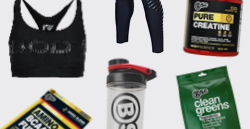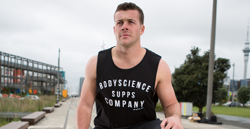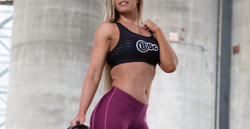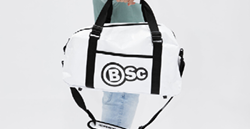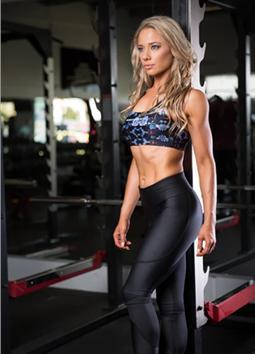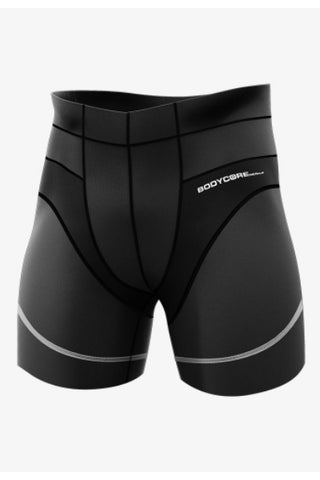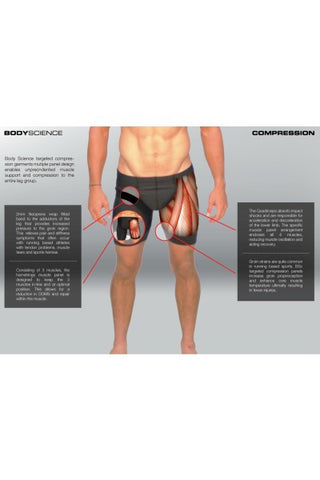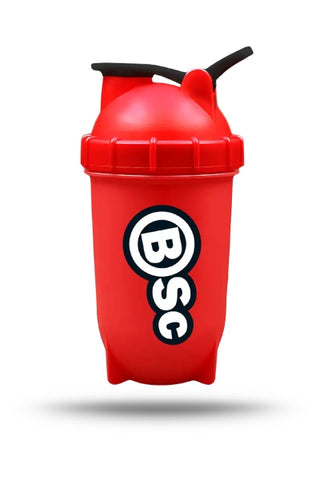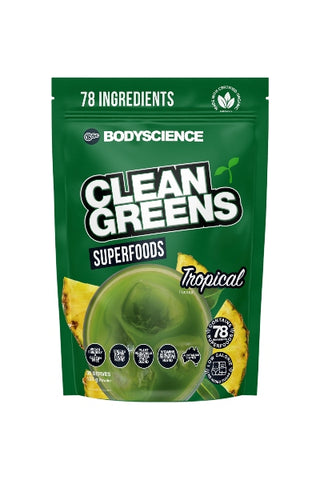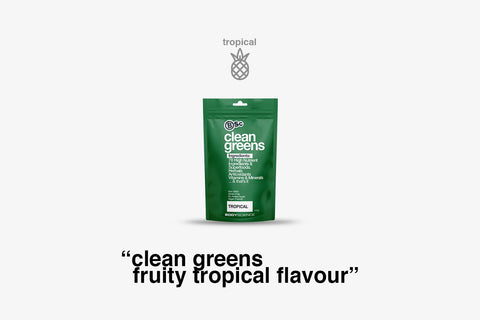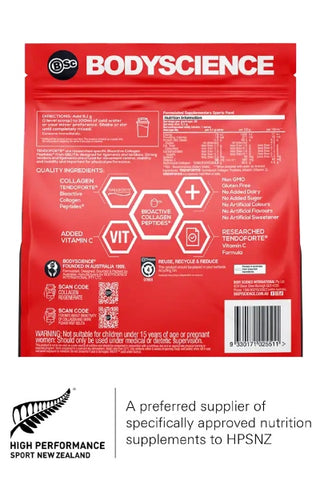Pink Compression Half Quad Shorts - Mens Pink
Previous Product Next Product Learn more
Learn more
NRL styled compression shorts, fitting under playing shorts for added glute, groin, ham and hip support. BODYSCIENCE athlete compression tights are designed and made in Australia. BODYSCIENCE athlete compression tights' panel design forms the cornerstone of these unique garments. With specific muscle panel alignment providing unmatched strength, support and fit...
NRL styled compression shorts, fitting under playing shorts for added glute, groin, ham and hip support.
BODYSCIENCE athlete compression tights are designed and made in Australia.
BODYSCIENCE athlete compression tights' panel design forms the cornerstone of these unique garments. With specific muscle panel alignment providing unmatched strength, support and fit to targeted muscle groups. Known as "targeted compression". Take your athletic performance to the next level.
Our athlete series compression tights are handcrafted from our unique high-performance compression fabric which includes superior moisture wicking qualities. This means that the material is able to "draw" sweat away from where it is produced, helping to dissipate body heat. Warp knit construction resulting in an increased number of fibres means greater durability. A greater "elastometric fibre content" creates material that can stretch further and return to its original shape without distortion. UV protection of 50+ protects from the harsh New Zealand sun.
Compression overview:
INCREASED VO2MAX AND ANAEROBIC THRESHOLD
Recent research in trained athletes reported that compression garments increased VO2max by 10% and anaerobic threshold by 40% (13). Given that these two physiological variables are highly correlated to success in endurance sports compression garments may provide a significant competitive advantage for endurance athletes.
REDUCED MUSCLE OSCILLATION
It has been suggested that excess oscillatory displacement of a muscle during a dynamic movement may contribute to fatigue and interfere with neurotransmission and optimal muscle recruitment patterns (14). Recent research reported that compression garments were able to significantly reduce longitudinal and anterior-posterior muscle oscillation by 0.32 and 0.40cm respectively upon landing from a maximal vertical jump (7).
ENHANCED PROPRIOCEPTION
Proprioception or joint position sense has major implications to athletic performance, particularly in the areas of technique and injury prevention. Research investigating hip joint proprioception reported significantly greater joint position sense at both 45 and 60 degrees hip flexion (11).
INCREASED EXPLOSIVE MUSCULAR POWER
Explosive muscular power is highly correlated with success in most sports. Research in track and field athletes has reported a 5.2% increase in maximal vertical jump height when vertical jumps are measured wearing compression garments (7).
REDUCED BLOOD LACTATE CONCENTRATIONS
High intensity exercise produces lactic acid which presents a challenge to the body’s ability to maintain pH within the narrow physiological range. This in turn can negatively impact the force generating capacity of the muscle which results in muscle fatigue and impaired athletic performance. Data published by Berry and McMurray (1) showed a 14% decrease in blood lactate concentrations 15 minutes following high intensity exercise when compression garments were worn during and after exercise.
FASTER RECOVERY
Muscle damage is an inevitable consequence of high intensity exercise and any technique that can facilitate muscle repair and faster recovery is of large benefit to the athlete. A study in elite rugby union players reported that compression garments worn immediately after a rugby match significantly reduced markers of muscle damage (creatine kinase) compared to passive recovery at 36 and 84 hours post match (8).
References:
1. Berry, M.J. McMurray, R.G. Effects of graduated compression stockings on blood lactate following an exhaustive bout of exercise. American Journal of Physical Medicine. 66:121-132, 1987
2. Bringard, A. S. Perrey, N. Belluye. Aerobic Energy Cost and Sensation Responses During Submaximal Running Exercise - Positive Effects of Wearing Compression Tights Int J Sports Med. 27:373-378, 2006.
3. Caraffa, A., Cerulli, G., Projetti, M., Aisa, G., Rizzo, A. Prevention of anterior cruciate ligament injuries in soccer. Knee surgery, sports traumatology, arthroscopy) 4:19-21, 1996.
4. Chatard, J.C. Atlaoui, D., Farjanel, J. Louisy, F. Rastel, D. Guezennec, C.Y. Elastic stockings, performance and leg pain recovery in 63-year-old sportsmen. European Journal of Applied Physiology. 93:347-352, 2004.
5. Cheung, K. Hume, P. Maxwell, L. Delayed onset muscle soreness : treatment strategies and performance factors. Sports Medicine. 33:145-164, 2003.
6. Cook, D.B., O'Connor, P.J. Eubanks, S.A. Smith, J.C. Lee, M. Naturally occurring muscle pain during exercise: assessment and experimental evidence. Medicine & Science in Sports & Exercise. 29:999-1012, 1997.
7. Doan, B.K., Kwon, Y.H. Newton, R.U. Shim, J. Popper, E.M. Rogers, R.A. Bolt, L.R. Robertson, M. Kraemer, W.J. Evaluation of a lower-body compression garment. Journal of Sports Sciences. 21:601-610, 2003.
8. Gill, N.D. Beaven, C.M. and Cook, C. Effectiveness of post-match recovery strategies in rugby players British Journal of Sports Medicine. 40:260-263, 2006.
9. Kraemer, W.J., Bush, J.A., Bauer, J.A., Triplett-McBride, N.T., Paxton, N.J., Clemson, A., Koziris, L.P., Mangino, L.C., Fry, A.C., Newton, R.U. Influence of compression garments on vertical jump performance in NCAA Division I volleyball players. Journal of strength and conditioning research 10:180-183, 1996.
10. Kraemer, W.J., Bush, J.A., Triplett-McBride, N.T., Koziris, L.P., Mangino, L.C., Fry, A.C., McBride, J.M., Johnston, J., Volek, J.S., Young, C.A., Gomez, A.L., Newton, R.U. Compression garments: influence on muscle fatigue. Journal of strength and conditioning research 12: 211-215, 1998
11. Kraemer, W.J., Bush, J.A., Newton, R.U., Duncan, N.D., Volek, J.S., Denegar, C.R., Canavan, P., Johnston, J., Putukian, M., Sebastianelli, W.J. Influence of a compression garment on repetitive power output production before and after different types of muscle fatigue. Sports medicine, training and rehabilitation 8:163-184, 1998
12. Kraemer, W.J., Bush, J.A., Wickham, R.B., Denegar, C.R., Gomez, A.L., Gotshalk, L.A., Duncan, N.D., Volek, J.S., Putukian, M., Sebastianelli, W.J. Influence of compression therapy on symptoms following soft tissue injury from maximal eccentric exercise. The journal of orthopaedic & sports physical therapy 31: 282-290, 2001.
13. Lambert, S. A crossover trial on the effects of graded compression garments exercise and recovery. Journal of Science and Medicine in Sport. 8:S222, 2005.
14. McComas, A.J. Skeletal Muscle: Form and Function.Champaign,IL, Human Kinetics. 1996.
15. Parkkari, J. Kujala, U.M. Kannus, P. Is it possible to prevent sports injuries? Review of controlled clinical trials and recommendations for future work. Sports Medicine. 31:985-995, 2001.
16. Powers, S.K. and Howley, E.T. Exercise Physiology: Theory and Application to Fitness and Performance.McGraw-Hill,USA. 1998.
17. Trenell, M.I. Rooney, K.B. Sue, C.M. and Thompson, C.H. Compression garments and recovery from eccentric exercise: A 31P-MRS study. Journal of Sports Science and Medicine. 2006 5: 106-114.




